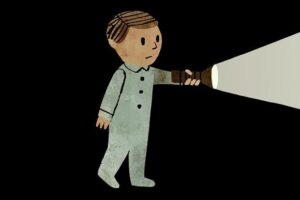Protection / Strategy / Egalitarian | Thoughts on boxing | Nelson Mandela, 1918-2013
Nelson Mandela
I did not enjoy the violence of boxing so much as the science of it. I was intrigued by how one moved one’s body to protect oneself, how one used a strategy both to attack and retreat, how one paced onself over a match.
Boxing is egalitarian. In the ring, rank, age, color, and wealth are irrelevant . . . I never did any real fighting after I entered politics. My main interest was in training; I found the rigorous exercise to be an excellent outlet for tension and stress.
Bob Gosani, Nelson Mandela boxing with professional boxer Jerry Moloi on a roof top in Johannesburg, 1953
After a strenuous workout, I felt both mentally and physically lighter. It was a way of losing myself in something that was not the struggle. After an evening’s workout I would wake up the next morning feeling strong and refreshed, ready to take up the fight again.
Nelson Mandela, Long Walk to Freedom, 1994
Although I had boxed a bit at Fort Hare, it was not until I had lived in Johannesburg that I took up the sport in earnest. I was never an outstanding boxer. I was in the heavyweight division, and I had neither enough power to compensate for my lack of speed nor enough speed to make up for my lack of power.
Nelson Mandela, Long Walk to Freedom, 1994
Nelson Mandela, 1952 Nelson Mandela
“I grew up knowing that my father was a boxer. We always had those pictures at home of him shadow boxing and I knew the gymwhere he used to go and practice and spar and so on. When he came out of prison, he was already a grown man and he couldn’t go back to the sport but we used to go boxing bouts together.”
Zindsi Mandela
“So I had the pleasure of going to Nelson Mandela’s home and having dinner with his family and his grandkids. I knocked on the door and he answered the door. He says, ‘Hello Sugar, how are you doing?’ He then added, “One thing I don’t tolerate, is people being late.’ I started sweating. It was puzzling, because I was about half and hour early. He then said, ‘My photographer should have been here a long time ago!”
“Sugar” Ray Leonard (boxer)
“I am deeply saddened by the passing of Mr. Mandela. His was a life filled with purpose and hope; hope for himself, his country and the world. He inspired others to reach for what appeared to be impossible and moved them to break through the barriers that held them hostage mentally, physically, socially and economically. He made us realize, we are our brothers’ keeper and that our brothers come in all colors. What I will remember most about Mr.Mandela is that he was a man whose heart, soul and spirit could not be contained or restrained by racial and economic injustices, metal bars or the burden of hate and revenge. He taught us forgiveness on a grand scale. His was a spirit born free, destined to soar above the rainbows. Today his spirit is soaring through the heavens. He is now forever free.”
Muhammad Ali’s Statement On Nelson Mandela’s Death, 2013








![On [:] Estimate | Niccolò Machiavelli, 1532 10 On [:] Estimate | Niccolò Machiavelli, 1532 Diego Velazquez e1712338094157](https://www.cocosse.com/wp-content/uploads/2024/04/Diego-Velazquez-e1712338094157-300x153.jpg)

